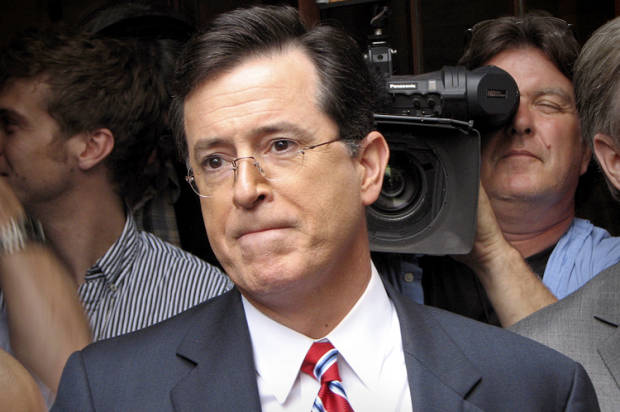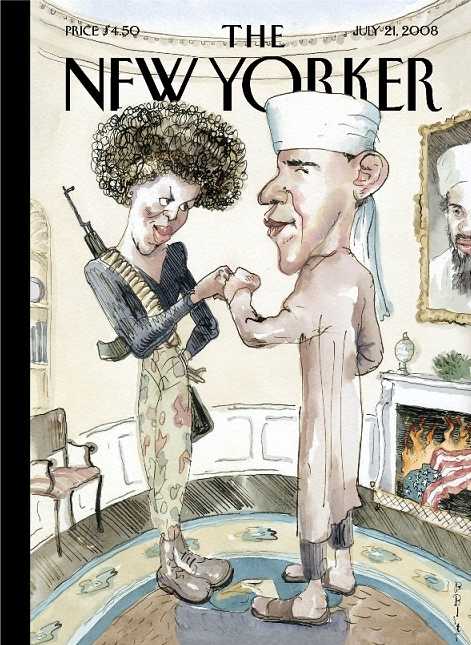No, we shouldn’t #CancelColbert
The outrage over a tweet shows how much umbrage we can take
By Mary Elizabeth Williams
But as a full-time, professional offended feminist, I’ve got to say that we all undercut the serious points we may be trying to make about changing the conversation when the response to something that we deem inappropriate is a full-on demand for somebody’s head. Aside from the fact that it’s ludicrous to think for a moment that a network is going to cancel an award-winning, successful show because of a poorly executed tweet, it’s just plain arrogant to even call for it. It gets attention, and maybe that’s the ultimate point, but it also says that if we see something we don’t like, we are justified in trying to eradicate it entirely. That’s an extreme and intellectually unsophisticated response. Earlier this month, a similar case of misplaced self-righteousness blew up when a University of California at Santa Barbara professor took and allegedly destroyed an abortion protester’s sign, telling her, “I may be a thief but you’re a terrorist,” and claiming that she’d been “triggered.”
An uproar to cancel "Colbert Report" over possibly insensitive joke says more about the Internet than the satirist
By Neil Drumming
So, when you think about it, it’s really Twitter that ruined Colbert’s totally legitimate dig. (I don’t suppose anyone’s down to get behind #CancelTwitter at this point, though.) Someone at @ColbertReport probably should have realized that not all of the long-winded host’s humor can be disseminated as bite-size chunks. Honestly, the best part of the joke—a tag about triangle hats—didn’t even make the feed. Maybe someone at the office should be held accountable for not knowing how Twitter works—but that doesn’t sound like a firing offense. I mean, really, “The Colbert Show” has given us so much pleasure over the years.
But the fact that a joke died on the Internet yesterday is not the problem here. The most unfortunate result is that now all over cyberspace--and regular space—folks are asking themselves whether or not “The Colbert Report” should be taken off the air instead of asking, “Wait, why are they still called the Redskins?”

Racism in "satire" = racism
Others thought the "joke" went awry. Whether they agreed with #CancelColbert or not, they were with okay with criticizing Colbert's insensitivity.
In support of #CancelColbert: Why Stephen Colbert needs to make this right
I’m a Colbert fan and know he was trying to expose the absurdity of slurs against Natives. But here’s why it failed
By Brittney Cooper
In other words, I’m saying that though the bit was intended to critique racism, it failed. Yes, Colbert was spot on in his analysis of the ridiculousness of Dan Snyder’s “Original Americans” Foundation. But to paraphrase one of my Twitter-locutors, Chris Robinson, you can’t make Asian people collateral damage on your way to proving a point about racism toward Native people.
And what we should understand is that as satire goes, there is the thinnest of lines between critiquing racism and reinforcing or reinscribing those very stereotypes. Remember the 2008 cover of the New Yorker, called “The Politics of Fear,” that attempted to satirize the range of racist mischaracterizations of the Obamas. It communicated the absurdity of those stereotypes, but did not communicate an alternative narrative, that would effectively combat the stereotypes at hand.
One, we never get to tell the harmed group what the proper response to racial injury should be for them. Two, rather than critiquing the strategy, why not simply send a tweet or email demanding an apology? Solidarity is rarely simple, but choosing not to minimize someone else’s struggle is quite easy.
We have to learn ways to be in solidarity with one another. Increasingly, racism does not follow a simple white-on-black schema. And while I’m well aware of the pervasiveness of anti-black racism among all groups including Asians and Latinos, I also know Orientalism (Edward Said’s term) when I see it. And it is unacceptable. Black folks should be against all forms of othering, ethnic insensitivity and racism. Period.
An out-of-context joke went viral on Twitter and sparked a national debate about the limits of satire
By Prachi Gupta

Why the "joke" failed
Why Colbert’s Joke Failed #NotYourSafeComedyRace
By Init
However, where The Colbert Report‘s satire fails is that a significant portion of The Colbert Report‘s audience does not intuitively or instinctively believe in their guts that saying “Ching Chong Ding Dong” or using the term “Orientals” is necessarily racist. Not everybody who laughs at “Ching Chong Ding Dong” is laughing because Colbert the character is so stupidly racist, but they are laughing at Asians. I believe this to be the case because this kind of anti-Asian dialog is still common in our society and is not immediately countered by most of society for being racist. It only becomes a problem, like for Rosie O’Donnell and her ching-chonging on The View, when Asians and anti-racists mobilize and call the offender out on it.
In Jonathan Swift’s “A Modest Proposal,” he calls for the sale of Irish children as food for the wealthy in order to resolve poverty. It is unconscionable and undeniably wrong, No one could call for such a thing in society without immediate reaction and knowing that it is wrong.
In order to properly satirize Snyder, then Colbert would have to say something that is undeniably racist to the whole of his audience. However, as we know, offense against Asians isn’t undeniably racist to the public because the outrage against the use of the word “Ching Chong Ding Dong” nor the casting of Asians as “sensitive” does not come from the whole of the public, but primarily from Asian Americans and their allies in the anti-racist movement.
Same with the New Yorker cover (above). A substantial minority of Americans thinks Obama is a foreigner and a Muslim. How is it a "satire" to reproduce their false beliefs without commentary?
Same with Colbert's "ching-chong" joke. No one knows what percentage of Americans "gets" that Asians talk in a normal voice, not in a sing-song cadence. If the "joke" failed to register with some people, it failed, period.
Then there's a whole subconscious level of perception going on. Where do people get the idea that Indians are savages or blacks are criminals? From movies and TV shows--including "satires" such as The Colbert Report.
That's true even though people "know," superficially, that stereotypes are false. Deep down, seeing or hearing is believing. People absorb stereotypical messages even when they think they know better. Especially when the messages repeated over and over.
For more on the subject, see:
Stereotyping explained to South Park apologists
Tomahawk Tassels stereotypes Native women
"Jokes" without punchlines are racist
The Dudesons, Polish jokes, and minstrel shows
Okay to stereotype in "satires"?


No comments:
Post a Comment